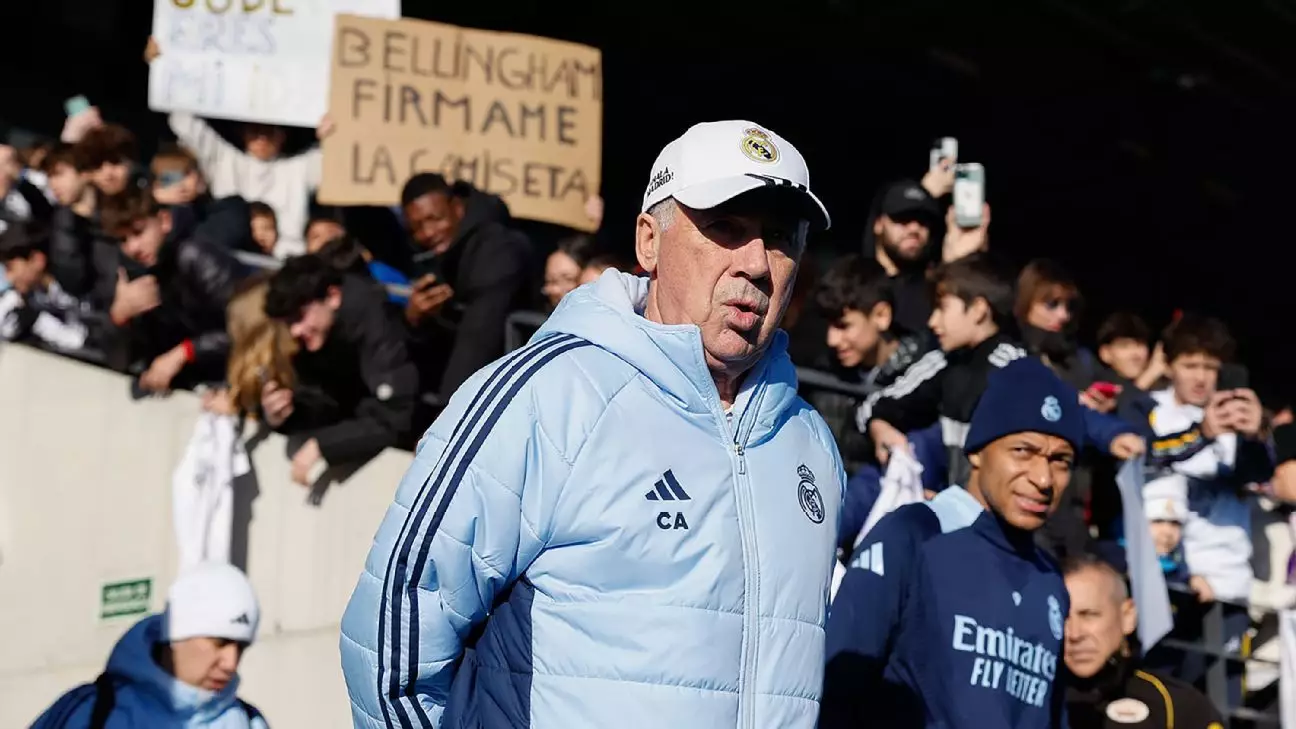As the January transfer window approaches, Real Madrid manager Carlo Ancelotti has found himself in a precarious position concerning potential squad reinforcements. Following a failed bid for Liverpool’s Trent Alexander-Arnold, Ancelotti remains ambiguous about his club’s January transfer strategy. Although he mentioned that discussions regarding potential signings may have taken place during the festive break, he was coy in providing any specifics. His trademark diplomatic approach shines through as he deflects questions, repeatedly emphasizing that the focus must remain on the immediate challenges ahead.
The backdrop of this transfer speculation centers around the fact that Madrid’s first-choice right-back, Dani Carvajal, is sidelined for the season due to a severe knee injury. This absence intensifies the urgency to explore new additions to the squad, particularly in defensive positions. However, Ancelotti expressed his preference to avoid distracting his players with transfer talk during such an intense period in the league.
This season has been marred by a spate of injuries for the Spanish giants. With defensive options dwindling, Ancelotti faces mounting pressure to navigate through this turbulent period effectively. The encouraging news, however, is the return to training of central defender David Alaba. The Austrian’s presence could provide a morale boost and strategic benefit to a squad that has endured significant challenges.
Interestingly, the injuries have not only tested the strength and depth of Madrid’s squad but also offered a glimpse of resilience and adaptability. Ancelotti’s affirmation that the team has managed to overcome adversities thus far underlines a commitment to fostering a strong ethos within the locker room.
As Madrid gears up for their opening match of 2025 against Valencia, they find themselves in a highly competitive La Liga landscape. Currently sitting a point behind Atlético Madrid and two points ahead of a faltering Barcelona, the title race is poised to become even more unpredictable as the season unfolds. Ancelotti hinted at the evolving nature of points required to win the league, suggesting that the relentless competition among the top clubs will alter historical expectations.
Barcelona’s shaky performances over their previous games have shaken the foundation of what many expected to be their season. Ancelotti’s reflection on this situation reveals a comprehensive understanding of the dynamics at play in La Liga. Rather than focusing solely on his team’s position, he recognizes the wider implications of each team’s performance, a crucial insight for any manager maintaining a realistic perspective.
Despite the setbacks, Ancelotti exudes optimism about his team’s morale and performance levels. Amid a challenging schedule where winning becomes increasingly vital, the atmosphere within the squad remains buoyant. This sense of positivity is crucial, as Madrid must consolidate their position and capitalize on every opportunity to gather points.
The manager understands that maintaining a winning mindset will not only benefit team unity but also help alleviate the pressure stemming from the ongoing injury crisis. Ancelotti’s ability to inspire and motivate his players becomes paramount in such tense situations.
As Real Madrid continues to navigate through an undercurrent of transfer speculation, injury woes, and a fiercely competitive league, Carlo Ancelotti’s leadership will undoubtedly be tested. With imminent fixtures set to define the latter half of the season, the club must juggle immediate performance needs while considering potential signings in the transfer window. The real challenge lies in balancing the urgency of the current moment with strategic foresight for the future. Should Ancelotti effectively manage both aspects, Madrid could very well find themselves firmly in the title race, regardless of the obstacles they face.


Leave a Reply